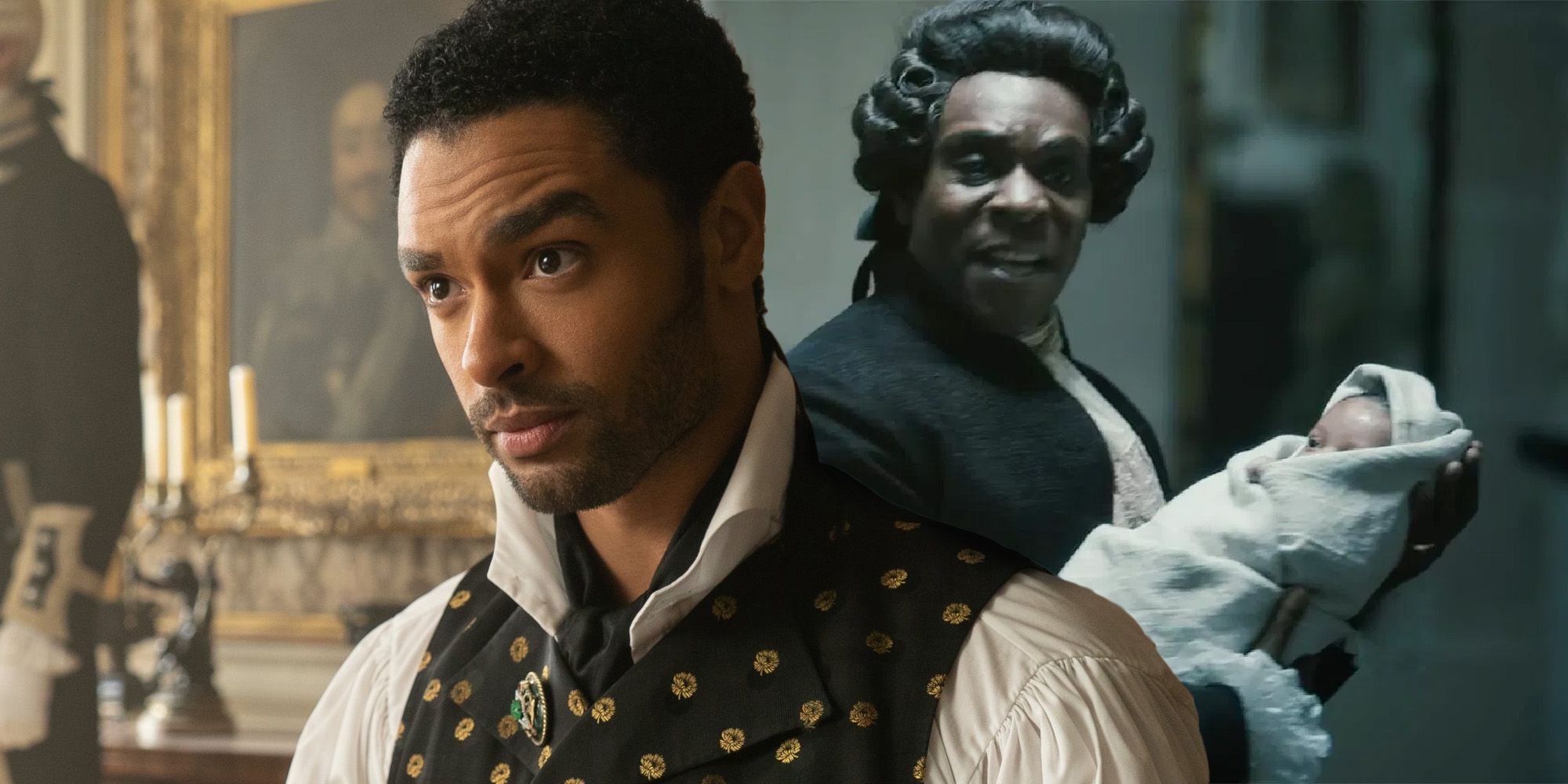ings
WARNING: Spoilers for Bridgerton season 1.
In Bridgerton, why does Lord Hastings reject young Simon for his alleged idiocy? During the second Netflix episode, "Shock and Delight," a flashback sequence offers contextual information for both characters and partially explains why the future Duke of Hastings refuses to have children. Simon's vow to remain childless ties back to his father's damaging childhood perceptions of him and how they shaped Simon into adulthood.
Bridgerton stars British actor Regé-Jean Page as Simon Basset, the Duke of Hastings. As an adult, he catches the attention of Daphne Bridgerton (Phoebe Dynevor) in 1813 London, and decides to maintain a convenient relationship with the young woman. In theory, their courtship will make Daphne more appealing in high society, and Simon won't have to worry about the painstaking process of being bombarded by potential partners. The second episode goes back in time to Simon's childhood and reveals that he was declared an "idiot" by his father, the result of a stutter. During the final moments of "Shock and Delight," adult Simon recalls a final conversation with his dying father, in which he vows to never have an heir of his own.
Lord Hastings rejects young Simon in Bridgerton for three key reasons. One, the early 1800s were not exactly an enlightened time in regard to things like mental illness or speech impediments, thus, a stammer was equated with "idiocy." Two, Lord Hastings is acutely aware he'd been granted a family title and land by the king and that it could be just as quickly taken away. Because they are Black, any "imperfections" could easily be used against their family for that reason. Three, Simon's mother died after giving birth to him, another resentful reason Lord Hastings rejects the boy. To the family patriarch, the Hastings name cannot land "in the quivering hands of a half-wit." As a result, Simon grows up without understanding what unconditional love feels like, and unsurprisingly shows little interest in maintaining romantic relationships, primarily because he lacks the appropriate amount of emotional intelligence that children typically learn from their parents. So, when Simon shows up in London and seems like the ideal suitor for Daphne Bridgerton, he invests little energy in a genuine friendship because he's learned to feel worthless and mistrustful because of his father's treatment of him.
Simon's childhood stammer in Bridgerton thematically links with the "hidden cousins" subplot in The Crown season 4. In Peter Morgan's series about Queen Elizabeth II, Princess Margaret (Helena Bonham Carter) discovers that she has relatives - Nerissa and Katherine Bowes-Lyon - who were institutionalized at the Earlswood Institution for Mental Defectives. As the nieces of Queen Elizabeth, the cousins' perceived imperfections could potentially affect the familial legacy even into the 1940s. So, in late 18th century England, Lord Hastings definitely believed he couldn't afford to have a son who couldn't speak properly in public. Fortunately for Simon, he was able to overcome his stammer with the assistance of Lady Danbury (Adjoa Andoh), someone who had his best interests at heart, but she still wasn't his biological parent.
In Bridgerton season 1, much of the primary narrative conflict revolves around Simon's feelings of inadequacy and resentment. He's able to play a prominent role in 1813 London society and has enough intelligence to spin certain narratives, but continuously rejects the idea of being a father. Through Daphne - someone who's similarly in the process of overcoming personal insecurities in Bridgerton - Simon not only learns to love himself but also learns how to embrace all the little imperfections that make his wife so unique and special.


